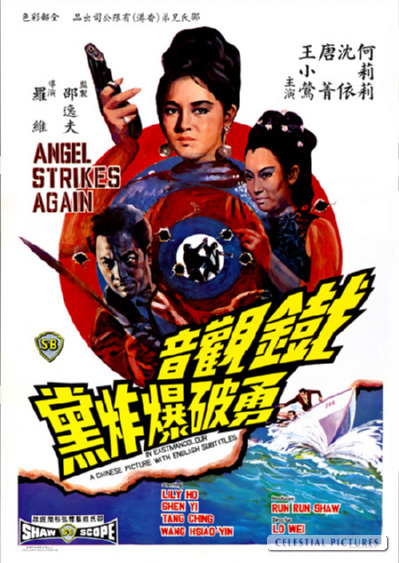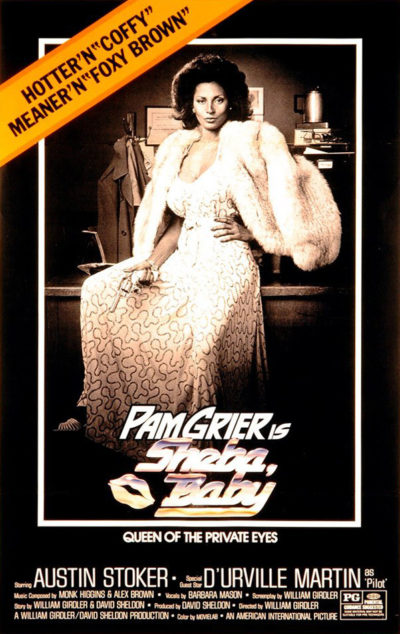Literary rating: ★★★★
Kick-butt quotient: ☆☆
 When you think of drugs, terrorism and South America, Colombia probably comes first to mind, thanks to Pablo Escobar and his cartel pals. However, it’s far from the only country in the region with a troubled history. Peru has had its fair share of strife: it produces virtually as much cocaine, and the Marxist guerillas of the Shining Path movement fought a long, bloody war against the government through the eighties. It’s during this time that the novel begins. Young girl Nina has her father killed by soldiers hunting the guerillas in her rural village, and her brother Miguel vanishes to join the Shining Path.
When you think of drugs, terrorism and South America, Colombia probably comes first to mind, thanks to Pablo Escobar and his cartel pals. However, it’s far from the only country in the region with a troubled history. Peru has had its fair share of strife: it produces virtually as much cocaine, and the Marxist guerillas of the Shining Path movement fought a long, bloody war against the government through the eighties. It’s during this time that the novel begins. Young girl Nina has her father killed by soldiers hunting the guerillas in her rural village, and her brother Miguel vanishes to join the Shining Path.
More than two decades later, Nina has grown up to become a cop in Lima, with the dirty war against the Shining Path apparently over – the terrorists have now, effectively, merged with the drug traffickers. She encounters Malqui, the former village priest who spent eight years in prison for protesting the murder of Nina’s father, and mentions knowing someone who had recently met Miguel. However, before she can get any more information, Malqui is picked up by the authorities and vanishes into the dark network of secret prisons. For it seems the dirty war is not as over as is publicly stated. To rescue Malqui – and perhaps be reunited with her long-lost brother – Nina is going to have to get her own hands dirty as well.
I must confess, I confused the title with “sicario,” the drug cartel term for hit-man. Between that and the cover, I was expecting something… different. Turns out, sendero is Spanish for “path” – and those who support the guerillas. Quite whether this includes the heroine is an interesting point. After the death of her father, it seems odd for her to end up as part of the government authorities, yet she becomes part of the “resistance” as she seeks to locate and free Malqui. Though by the end of the book, it’s clear that the remnants of the Shining Path are no more the solution either, with their morality little if any less problematic. The entire novel could be printed in various shades of grey: even Nina is prepared to do bad things for what she perceives as a good end.
As such, it’s a very thought-provoking read, and opened my eyes to the history of a country about which I had never known much previously, and its social and political struggles. If there’s a weakness, it’s probably the way in which Nina ends up taking a seat in the second half, with the story’s focus shifting to Miguel and his colleagues in the Shining Path [though among them, Comrade Inez does partly fill in for the lack of Nina]. It’s a shame, for Nina is an excellent heroine: one who never forgets either where she came from, or where she wants to be, and is willing to risk everything for others, in a highly altruistic manner. Hopefully, the second book is all Nina, all the time.
Author: Max Tomlinson
Publisher: Sendero Press, available through Amazon, both as a paperback and an e-book
Book 1 of 2 in the Sendero series.





 Officer Shivani Shivaji Roy (Mukerji) is part of the Serious Crimes Squad in Delhi, whose approach to policing is very much “by any means necessary.” However, she is taken out of her area of expertise when Pyaari. a young girl she has been helping goes missing from an orphanage. Everything indicates the girl has been picked up by a sex trafficking ring, run by Sunny Katyal (Verma) and his partner, Karan (Bhasin), and will soon be sold off to the highest bidder and exported out of the country. Roy has to work her way up the chain to rescue Pyaari, despite opposition both from her boss, because it’s not her responsibility, and from the gang. As she gets nearer to the top, the climb becomes increasingly hard, with the criminals making it clear they won’t take lightly the threat to their lucrative business which Roy represents. It’s also clear they have friends in high places.
Officer Shivani Shivaji Roy (Mukerji) is part of the Serious Crimes Squad in Delhi, whose approach to policing is very much “by any means necessary.” However, she is taken out of her area of expertise when Pyaari. a young girl she has been helping goes missing from an orphanage. Everything indicates the girl has been picked up by a sex trafficking ring, run by Sunny Katyal (Verma) and his partner, Karan (Bhasin), and will soon be sold off to the highest bidder and exported out of the country. Roy has to work her way up the chain to rescue Pyaari, despite opposition both from her boss, because it’s not her responsibility, and from the gang. As she gets nearer to the top, the climb becomes increasingly hard, with the criminals making it clear they won’t take lightly the threat to their lucrative business which Roy represents. It’s also clear they have friends in high places. This is a sequel to
This is a sequel to  There is entertainment value to be found even in bad movies. Bad action, horror and SF are sometimes just as amusing as the good stuff. But bad comedy is almost irredeemable: that’s why Mystery Science Theater 3000 rarely go there. Bad comedy just… sits there, dull and unamusing, almost worthless. And that’s what we have here. It’s a somewhat interesting idea, with some potential. Unfortunately, the execution – mostly in the script and direction – are so woefully inept that even the brave efforts of Florence Henderson, in her final film, aren’t enough to salvage it. And wasting the talents of Pam Grier needs to be some kind of cinematic capital offense.
There is entertainment value to be found even in bad movies. Bad action, horror and SF are sometimes just as amusing as the good stuff. But bad comedy is almost irredeemable: that’s why Mystery Science Theater 3000 rarely go there. Bad comedy just… sits there, dull and unamusing, almost worthless. And that’s what we have here. It’s a somewhat interesting idea, with some potential. Unfortunately, the execution – mostly in the script and direction – are so woefully inept that even the brave efforts of Florence Henderson, in her final film, aren’t enough to salvage it. And wasting the talents of Pam Grier needs to be some kind of cinematic capital offense. I mention the above for two reasons. Firstly, because Chris wondered why the film was called “At One”. Secondly, because when it finished, I turned to her and said those four little words which mean so much: “I can only apologize…” Yes, to use it in a sentence, I’ll be atoning for picking to watch this low-rent “Die Hard in a church” offering, for some time to come. [Though the following night, I had to sit through her choice of Justice League: paid back in full, I’d say…] There were a couple of aspects here that weren’t terrible; unfortunately, the overall execution was painfully close to… well, god awful seems the appropriate term here.
I mention the above for two reasons. Firstly, because Chris wondered why the film was called “At One”. Secondly, because when it finished, I turned to her and said those four little words which mean so much: “I can only apologize…” Yes, to use it in a sentence, I’ll be atoning for picking to watch this low-rent “Die Hard in a church” offering, for some time to come. [Though the following night, I had to sit through her choice of Justice League: paid back in full, I’d say…] There were a couple of aspects here that weren’t terrible; unfortunately, the overall execution was painfully close to… well, god awful seems the appropriate term here. I should probably have learned from my first experience with Ms. Hu: the thoroughly mediocre jungle ensemble piece which was
I should probably have learned from my first experience with Ms. Hu: the thoroughly mediocre jungle ensemble piece which was  Vic Stratton
Vic Stratton Lan Hsiao-Tieh (Lu) is one of four illegal immigrants to Hong Kong, who manage to escape from the human traffickers bringing them to the colony – albeit after Lan has been raped by one. She and her friends just about manage to eke out a living on the edge of society, which treats them very unkindly in comparison to legal residents: for example, working as a coolie, they get only a fraction of the wages. As a result, they’re forced into criminal activity. One of the victims of the resultant pick-pocketing is the feared Chief Detective Lu (Lui), who tracks down the gang and makes them an offer: go undercover and help in his investigation of a Triad gang called the Eagles, in exchange for legal status. Lan is doubtful – until she realizes that one of the targets is the man who raped her. With the assistance of training from a retired thief, Lan is inserted as the moll of the gang’s leader, Hao (Tien Feng).
Lan Hsiao-Tieh (Lu) is one of four illegal immigrants to Hong Kong, who manage to escape from the human traffickers bringing them to the colony – albeit after Lan has been raped by one. She and her friends just about manage to eke out a living on the edge of society, which treats them very unkindly in comparison to legal residents: for example, working as a coolie, they get only a fraction of the wages. As a result, they’re forced into criminal activity. One of the victims of the resultant pick-pocketing is the feared Chief Detective Lu (Lui), who tracks down the gang and makes them an offer: go undercover and help in his investigation of a Triad gang called the Eagles, in exchange for legal status. Lan is doubtful – until she realizes that one of the targets is the man who raped her. With the assistance of training from a retired thief, Lan is inserted as the moll of the gang’s leader, Hao (Tien Feng). After the success of
After the success of  This 1986 TV movie was the first film made about an FBI agent while they were still active. Gibson was the fifth black female agent in the bureau’s history: she broke new ground by being the first such assigned to the Fugitive Matters department in the Miami branch, and was also the first to reach a supervisory level within the FBI. That would, however, be well after the story told in this film. It covers how she came to join the FBI, and her first major undercover operation, taking down a gun-running ring operated by ex-NFL star, Adam Prentice (Lawson). However, Gibson starts to find the lines between real-life and undercover work blurring, and begins feeling genuine affection for her target. This doesn’t sit well with her partner, TC (Rollins). If it sounds all very by the numbers… It is.
This 1986 TV movie was the first film made about an FBI agent while they were still active. Gibson was the fifth black female agent in the bureau’s history: she broke new ground by being the first such assigned to the Fugitive Matters department in the Miami branch, and was also the first to reach a supervisory level within the FBI. That would, however, be well after the story told in this film. It covers how she came to join the FBI, and her first major undercover operation, taking down a gun-running ring operated by ex-NFL star, Adam Prentice (Lawson). However, Gibson starts to find the lines between real-life and undercover work blurring, and begins feeling genuine affection for her target. This doesn’t sit well with her partner, TC (Rollins). If it sounds all very by the numbers… It is.